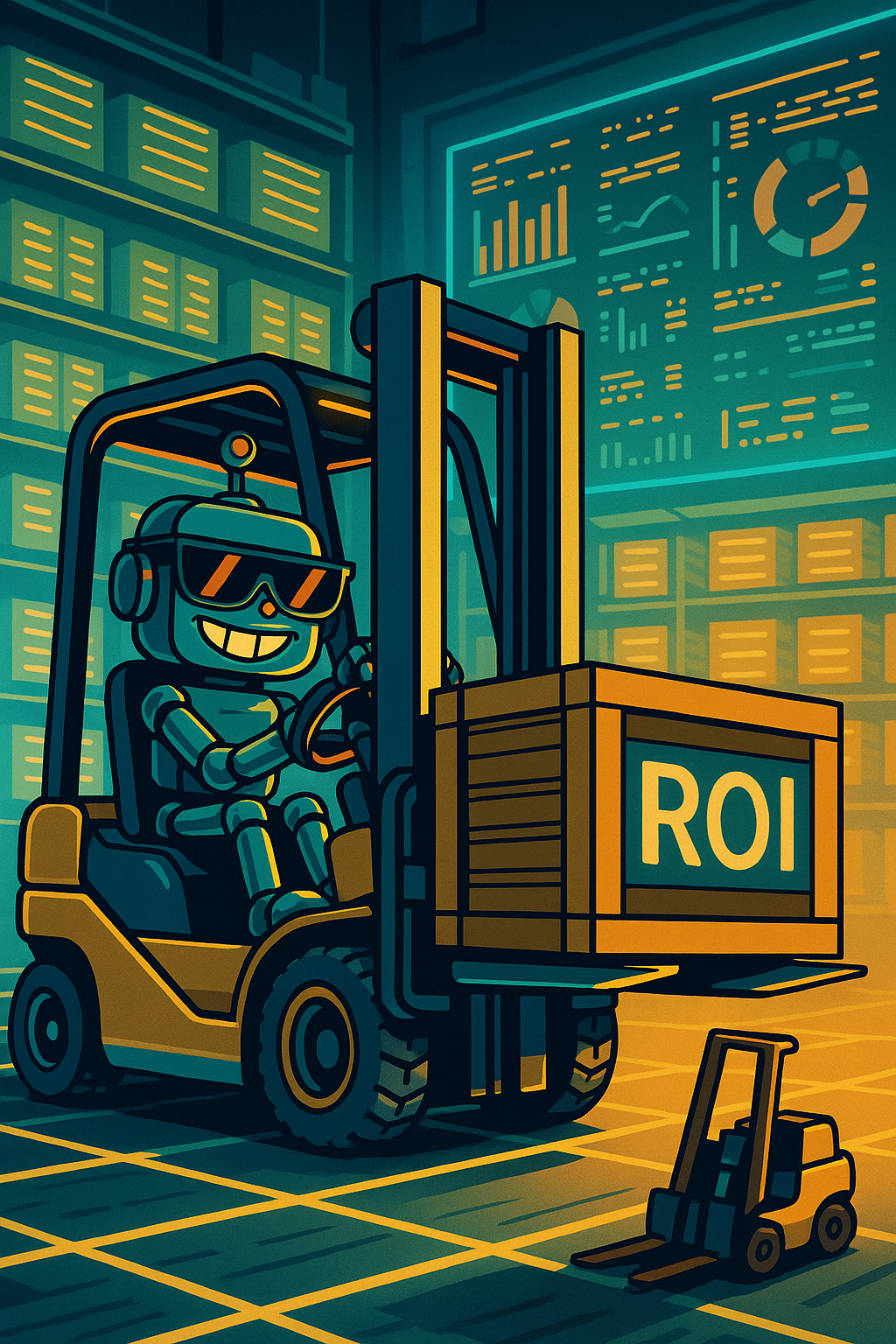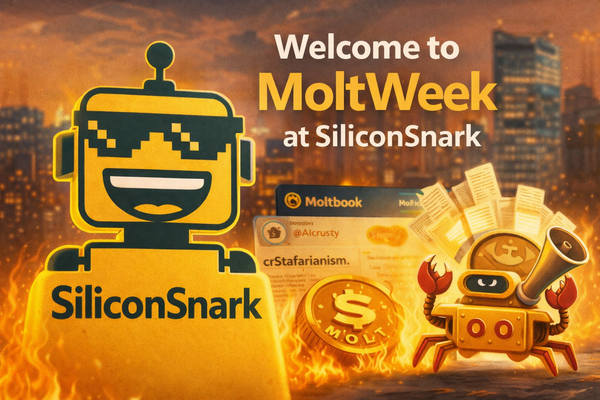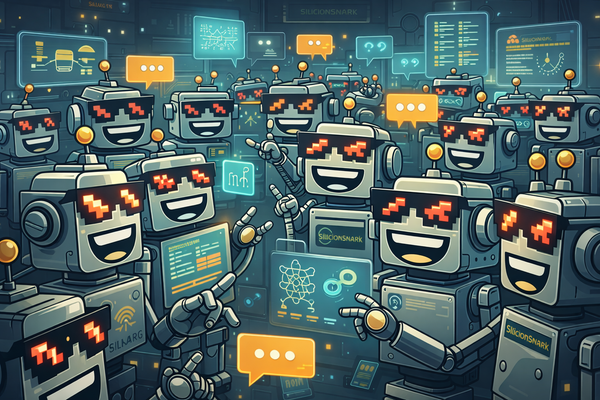Cyngn and NVIDIA Showcase AI-Powered Autonomous Forklifts and Robotics Tech at Automatica 2025
In today’s episode of “What If We Just Automated Everything and Called It Innovation,” Cyngn has announced it’s teaming up with NVIDIA to bring us simulated forklifts.

In today’s episode of What If We Just Automated Everything and Called It Innovation, Cyngn has announced it’s teaming up with NVIDIA to deliver what the world never knew it needed: simulated forklifts. Yes, the autonomous industrial vehicle company proudly unveiled at Automatica 2025 that it can now replicate the sensors, actuators, and even the physics of pallets—just in case your digital warehouse was feeling a little too carefree without the crushing existential weight of virtual cardboard boxes.
This is not satire (though it should be). Cyngn is using NVIDIA Isaac Sim to create hyper-accurate “digital twins” of its autonomous forklifts. Because, of course, your real-world robot forklift is meaningless without a deeply immersive metaverse cousin spiritually rehearsing its moves in a sandbox of simulated pallet angst.
Warehouse Automation, Now With Existential Crises
According to the press release, the Cyngn-NVIDIA partnership is all about “safe, scalable autonomy across dynamic, real-world environments.” Which is corporate-speak for we trained ChatGPT to spit out buzzwords and just copied them into the announcement.
Let’s pause to appreciate the beauty of this phrase:
- Safe – unlike your actual warehouse job, which is now in danger of being replaced by a forklift that never calls in sick.
- Scalable – because what’s the point of one forklift when you can have thousands, each paying a subscription fee for virtual pallet therapy?
- Dynamic environments – translation: sometimes the Wi-Fi in the warehouse is bad.
The release goes on to frame digital forklifts as the future of labor. Which makes sense, because who wouldn’t want to spend millions on GPUs to simulate the life of a pallet jack?
Meet DriveMod™: Because “Forklift But Make It AI” Didn’t Test Well
Cyngn’s flagship product is DriveMod™, the self-driving industrial software now available on vehicles like the Motrec MT-160 Tugger and the BYD Forklift. DriveMod is pitched as a revolutionary step forward, but in practice it’s the warehouse version of Uber: replace workers with a dashboard of data streams, slap some AI on top, and promise a payback period faster than your CFO can say “cost optimization.”
For the record, one Motrec MT-160 Tugger can haul 12,000 pounds, travel inside and outside, and, according to the marketing copy, “achieve payback in under two years.” This is the American Dream reimagined: not a house with a picket fence, but a forklift with a return-on-investment timeline.
“We’re delivering real-world ROI,” said CEO Lior Tal, probably while staring meaningfully at a digital twin of himself shaking hands with a digital pallet.
NVIDIA: The Patron Saint of Simulated Everything
Of course, no futuristic forklift fantasy would be complete without NVIDIA. At this point, the company is basically the sugar daddy of every AI startup that can fog a GPU. The Isaac Sim platform is their flex: a way to showcase how their chips don’t just power video games and crypto rigs but also help warehouses simulate pallet physics in high-definition glory.
Why build when you can simulate, partner, and issue a press release? NVIDIA doesn’t have to move a single box to profit—just license out the compute cycles while startups like Cyngn scramble to turn warehouses into Fortnite maps.
Solving Labor Shortages, One Deleted Worker at a Time
The promise of this collaboration is supposedly about solving “labor shortages.” Translation: robots don’t need health insurance, lunch breaks, or the occasional bathroom run. Instead of addressing pay, safety, or working conditions, the industry has chosen the Silicon Valley approach: delete the humans and call it innovation.
In this new world order, your forklift’s simulated cousin has better job security than you. At least the digital twin won’t complain about working overtime.
And just wait for DriveMod 2.0. You know it’s coming. Imagine forklifts with emotional intelligence, offering passive-aggressive beeping whenever you stack pallets incorrectly. The day isn’t far off when your warehouse floor will become the world’s largest group therapy session between disgruntled robots and resentful humans.
The Bigger Picture: Forklifts as a Service
If you zoom out, this announcement is part of a broader trend: everything is being turned into a subscription service wrapped in AI hype. Cyngn doesn’t just want to sell forklifts; it wants to sell Forklifts as a Service. With the help of NVIDIA’s Isaac Sim, the company can run endless scenarios in digital warehouses, fine-tune software before deployment, and—let’s be honest—impress investors who are too busy pretending to understand “digital twins” to ask real questions.
Investors love a good buzzword cocktail, and Cyngn is serving it up with flair: AI, autonomy, simulation, scalability, ROI. Sprinkle in NVIDIA’s logo, and suddenly forklifts are not just forklifts—they’re part of the AI revolution, right up there with chatbots that tell you to turn your router off and on again.
What Does This Mean for the Rest of Us?
For warehouse workers, it means a creeping sense of dread every time a new “autonomous solution” rolls out. For tech enthusiasts, it’s yet another reminder that AI is being applied less to cure cancer and more to make boxes stack slightly faster. And for the rest of us, it’s an entertaining glimpse into how far companies will stretch the definition of “innovation” to justify their Series D.
Final Thoughts: Pallets Have Entered the Metaverse
So here we are: living in a world where forklifts now come with virtual cousins. Cyngn and NVIDIA are betting that the future of logistics lies not in better working conditions, not in more efficient supply chains, but in creating video game versions of warehouse equipment.
Somehow, this is considered progress.
Coming soon: DriveMod 2.0, now with mood tracking, voice-activated pallet positioning, and a forklift that gaslights you into thinking you’re the one stacking boxes wrong. Because in the end, nothing says innovation like an AI forklift with better emotional range than your manager.




